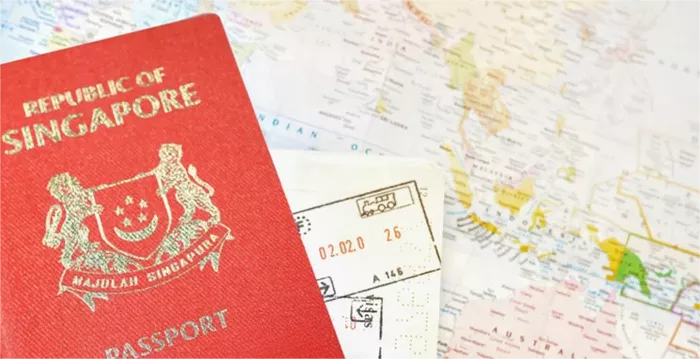Singapore, a bustling hub of economic activity and innovation in Southeast Asia, attracts a diverse pool of talent from around the globe. As a result, the city-state offers a range of work permit options tailored to meet the needs of both employers and foreign workers. Navigating this landscape can be complex, but with the right information, individuals and businesses can make informed decisions. In this article, we delve into 10 various types of work permits available in Singapore, exploring their eligibility criteria, application processes, and key considerations.
1. Employment Pass (EP)
The Employment Pass (EP) is one of the most common work permits for foreign professionals, managers, executives, and specialists seeking employment in Singapore. To qualify for an EP, applicants must typically earn a fixed monthly salary above a specified threshold, possess relevant qualifications, and demonstrate relevant work experience. EP holders enjoy flexibility in terms of job scope and employer, making it an attractive option for skilled professionals.
2. S Pass
The S Pass caters to mid-level skilled workers employed by companies operating in Singapore. Unlike the EP, the S Pass has specific eligibility criteria related to salary, qualifications, and work experience. Employers must also meet quota requirements for hiring S Pass holders, ensuring a balance between local and foreign manpower. While not as flexible as the EP, the S Pass provides an avenue for skilled individuals to contribute to Singapore’s workforce.
3. Work Permit (WP)
Designed for semi-skilled foreign workers in sectors such as construction, manufacturing, and services, the Work Permit (WP) allows employers to hire foreign labor to fill positions that cannot be easily filled by locals. WP holders are subject to sector-specific requirements and quotas, and their employment is tied to a specific employer. This work permit category plays a crucial role in supporting industries vital to Singapore’s economy.
4. EntrePass
Entrepreneurs looking to establish and operate a business in Singapore can apply for the EntrePass. This work permit is tailored for individuals who have innovative business ideas, possess relevant experience, and demonstrate the potential to contribute to the local economy. EntrePass holders enjoy greater flexibility in managing their businesses compared to other work permit holders, making it an attractive option for aspiring entrepreneurs.
5. Personalized Employment Pass (PEP)
The Personalized Employment Pass (PEP) is aimed at high-earning foreign professionals who wish to retain flexibility in their employment options. Unlike the EP, the PEP is not tied to a specific employer, allowing holders to switch jobs without the need to reapply for a new pass. However, eligibility criteria for the PEP are stringent, requiring applicants to meet higher salary thresholds and possess relevant qualifications and experience.
6. Training Employment Pass (TEP)
The Training Employment Pass (TEP) facilitates the training of foreign professionals in Singapore for up to 3 months. This pass is suitable for individuals undergoing practical training or professional development programs conducted by Singapore-based companies. TEP holders are not permitted to engage in any form of employment beyond the scope of their training program.
7. Miscellaneous Work Pass
The Miscellaneous Work Pass caters to individuals engaged in short-term or ad-hoc assignments in Singapore. This includes speakers, religious workers, journalists, and individuals participating in corporate events or exhibitions. The pass is valid for up to 60 days and is subject to specific criteria and approval by the Ministry of Manpower (MOM).
8. Work Holiday Pass (WHP)
Designed for young adults aged 18 to 25 from specific countries, the Work Holiday Pass (WHP) allows holders to work and holiday in Singapore for up to 6 months. WHP holders can seek employment in any industry during their stay, providing them with valuable international work experience while exploring the vibrant culture and lifestyle of Singapore.
9. Dependant’s Pass (DP)
The Dependant’s Pass (DP) is available to spouses and children of EP or S Pass holders, allowing them to reside in Singapore and, in some cases, seek employment or pursue education. DP holders enjoy flexibility in terms of residency and can apply for a Letter of Consent (LOC) to work in Singapore without the need for a separate work pass.
10. Long-Term Visit Pass (LTVP)
The Long-Term Visit Pass (LTVP) is for common-law spouses, stepchildren, or elderly parents of Singapore citizens or permanent residents. LTVP holders can reside in Singapore for extended periods and may apply for an LOC to seek employment, subject to approval by the MOM. This pass provides family members with the opportunity to join their loved ones in Singapore on a long-term basis.
Conclusion
Singapore’s diverse economy and vibrant business environment offer numerous opportunities for foreign professionals and entrepreneurs seeking to work and reside in the city-state. The various types of work permits cater to different skill levels, employment situations, and business objectives, providing flexibility and support for both employers and foreign workers. By understanding the eligibility criteria, application processes, and key considerations associated with each work permit category, individuals and businesses can make well-informed decisions to navigate Singapore’s dynamic labor market effectively.


